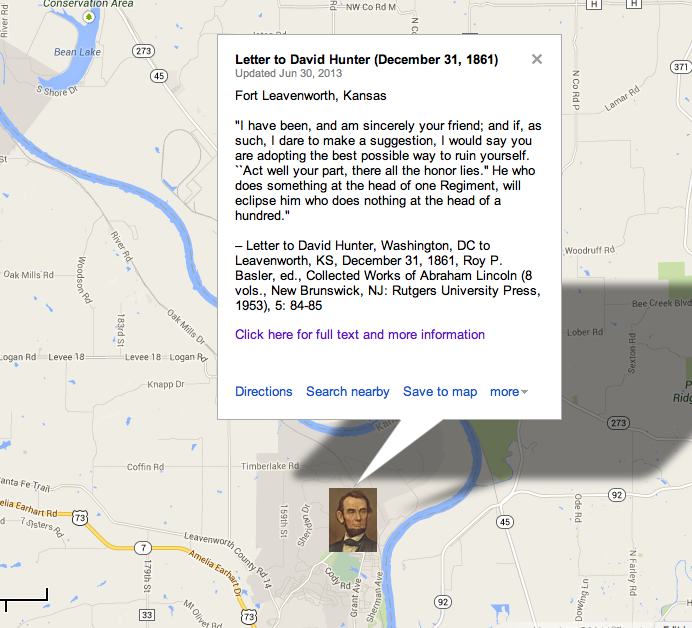Contributing Editors for this page include Thomas Warf
Ranking
#84 on the list of 150 Most Teachable Lincoln Documents
Annotated Transcript
On This Date
HD Daily Report, December 31, 1861
The Lincoln Log, December 31, 1861
Custom Map
Close Readings
Posted at YouTube by “Understanding Lincoln” course participant Thomas Warf, August 2014
How Historians Interpret
“Other squabbles among generals exasperated Lincoln. David Hunter and John G. Foster quarreled about which of them would control a part of Foster’s corps that happened to be situated in Hunter’s department. John M. Schofield threatened to resign his command in Missouri because Samuel R. Curtis would not authorize him to undertake offensive action. Curtis in turn objected to orders transferring some of his troops to the Vicksburg front. To Lincoln’s relief, Grant conducted the Vicksburg campaign without grumbling.”
–Michael Burlingame, Abraham Lincoln: A Life (2 volumes, originally published by Johns Hopkins University Press, 2008) Unedited Manuscript by Chapter, Lincoln Studies Center, Volume 2, Chapter 30 (PDF), 3291-3292.
“Nine months into his term the new president, whose letters would prove to be full of perhaps surprisingly explicit moral sagacity, would give some advice to General David Hunter that could have been directed to his own lowly status and alleged lack of preparation for the highest office, and taken as an indication of Lincoln’s own moral self-shaping. Hunter, a man whom Lincoln knew, had been sending him a ‘flood of grumbling’ letters and had complained about being in command of ‘only 3000.’ Lincoln, preparing his response, first insisted that he was Hunter’s friend and therefore could ‘dare to make a suggestion.’ Then he told Hunter – in a December 31, 1861 letter – that his grumbling about the smallness of his role was the best way to ruin himself. Lincoln in aid of his point then called up from his memory of English poetry a line from Alexander Pope’s Essay on Man: ‘Act well your part there all the honor lies.’”
–William Lee Miller, President Lincoln (New York: Knopf, 2008).
NOTE TO READERS
This page is under construction and will be developed further by students in the new “Understanding Lincoln” online course sponsored by the House Divided Project at Dickinson College and the Gilder Lehrman Institute of American History. To find out more about the course and to see some of our videotaped class sessions, including virtual field trips to Ford’s Theatre and Gettysburg, please visit our Livestream page at http://new.livestream.com/gilderlehrman/lincoln

